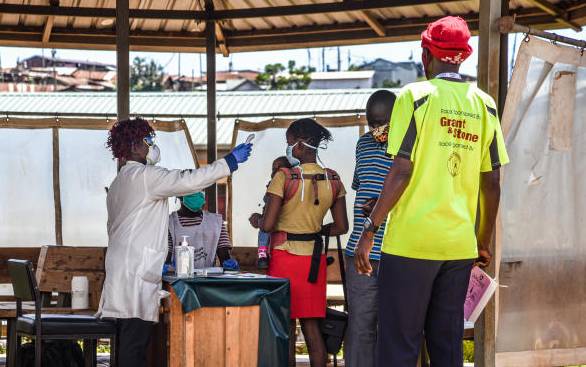×
The Standard e-Paper
Stay Informed, Even Offline

Kibera South Health Centre is a facility that was built and managed by MSF up to mid-2017 when it was handed over to the Ministry of Health (MOH) to continue managing it. [File, Standard]
Dr Lil Wangari is passionate about reaching vulnerable groups amid the Covid-19 pandemic. Those with pre-existing conditions, especially, are faced with unique challenges in accessing healthcare during a time when they are the most at risk from coronavirus.